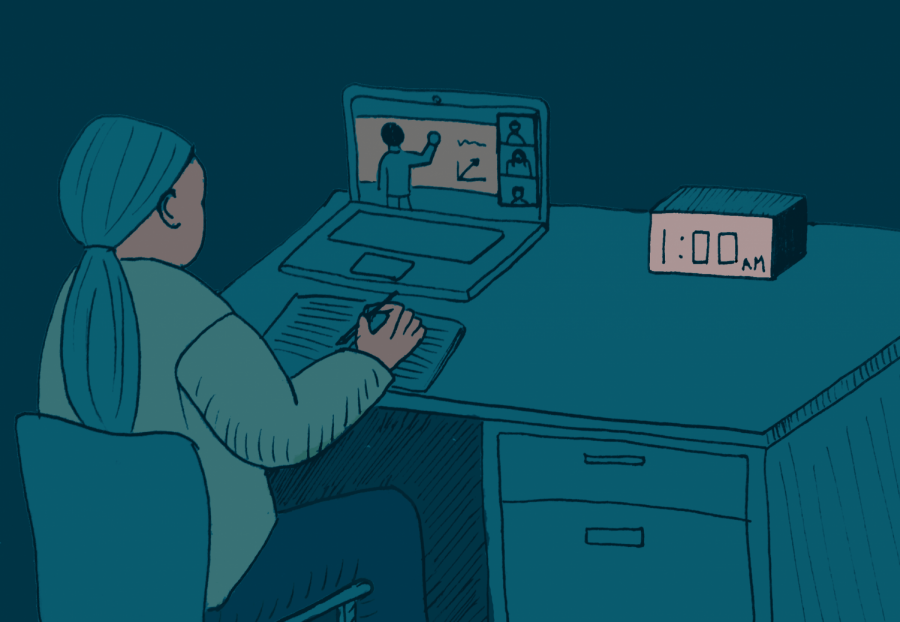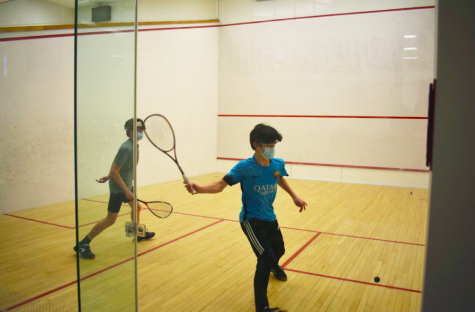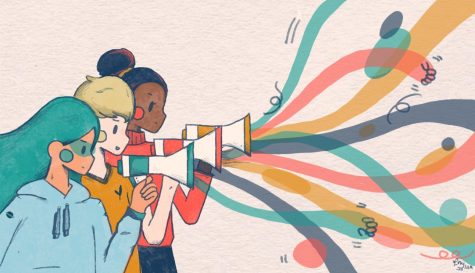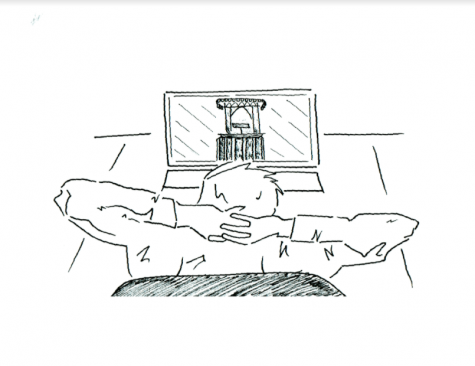Remote Learner Check-In
With two more weeks of school remaining, a lot has occurred for both students on the Circle, as well as students in remote learning. The recent hybrid teaching model has been a unique experience for new and returning students alike. The majority of remote learners are in East Asia, with others spread around the globe in countries such as India and Nigeria. From the ups of online learning (sleeping in) to the downs (missing friends), remote students have undergone mixed experiences regarding academics, social life, and more, all while being thousands of miles away from campus.
Most classes conducted under the hybrid teaching model consists of remote students connecting on Zoom, while students on campus socially distance in classrooms. However, technological complications – such as audio problems, low video quality, and even power outages – have made class participation challenging for remote learners.
“Remote learning is sometimes difficult because the Wi-Fi doesn’t work, and that might cause me to miss parts of class,” says Fung Lam ‘24, a new Third Former from China.
When technology does function, remote students still have noted stark differences in the online learning experience. “Even when going to school on Zoom in real time, it feels as if you’re watching a recording of the class,” says Tommy Giroux ‘22, who is currently remote under the eastern time zone. In contrast with earlier remote learning last spring, when everybody was online, many remote learners this fall feel they are missing out on class discussions and group collaborations.
For new students studying remotely, social life has also presented a challenge. From weekend activities to club meetings, many new remote learners echo the same concerns on missing social opportunities. “I miss being able to hang out with friends as well as participate in dorm life,” says Caiyu Yang ‘25. Other new students have also mentioned the lack of occasions for interacting with peers, as well as oftentimes not being able to join in on class activities. For instance, a remote Third Form student switched from Ecology to Biology due the inability to participate in many hands-on projects in Ecology.
For older remote learners, particularly seniors, the heavy workload paired with inconvenient school resources have caused a monotonous academic lifestyle. “I am not able to communicate with my classmates on a regular basis about hard materials, so I feel extremely underpowered to take on stuff such as electricity and magnetism problem sets,” says Harry Liao ‘21. Moreover, seniors have had to juggle academics with college applications and other leadership roles, further making remote learning even more of a challenge. Many remote Fifth and Sixth Formers have mentioned that an improvement in Zoom audio quality would be conducive to their learning.
Despite the challenges of online studying, some students have expressed their satisfaction with the experience. “My learning has been engaging, and I don’t think I have been put at any significant disadvantage compared to on-campus students,” says Evan Cheigh ‘22. Other remote learners have said that, throughout this process teachers have been very accessible, and students have appreciated the extra support faculty have put into ensuring an effective learning environment.
“Class assignments have been very clear,” says Kogo Bennison ‘24, a new Third Former from Egypt.
The online learning experience will always differ from being on the Circle. Still, all remote students mentioned the exceptional dedication teachers have to ensure active learning, as well as the easy accessibility to faculty through emails. More technology improvements are coming, which will hopefully bridge the gap between remote and on-campus students.











